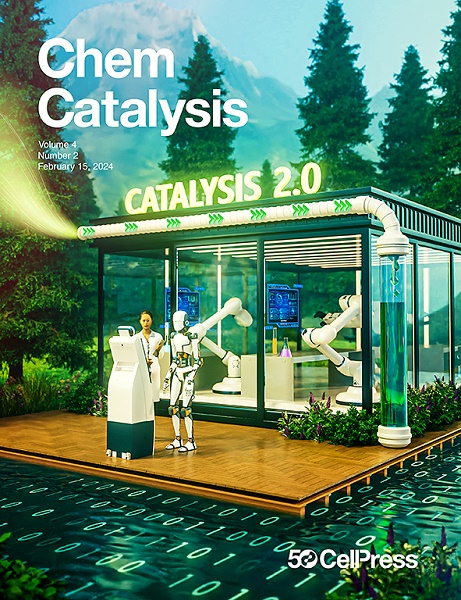揭示沸石催化剂上甲醇-烯烃转化的失活机理
IF 11.5
Q1 CHEMISTRY, PHYSICAL
引用次数: 0
摘要
由于甲醇制烯烃 (MTO) 转化的复杂性,阐明失活机理仍是一项挑战。在本期《化学催化》(Chem Catalysis)杂志上,范伟斌及其合作者阐明了焦炭前体(即交联共轭物)在沸石催化剂上的形成和演化,为 MTO 转化过程中的失活机理提供了新的见解。本文章由计算机程序翻译,如有差异,请以英文原文为准。
Unraveling the deactivation mechanism of methanol-to-olefin conversion over zeolite catalysts
Because of the complexity of methanol-to-olefin (MTO) conversion, clarifying the deactivation mechanism is still challenging. In this issue of Chem Catalysis, Weibin Fan and co-workers clarify the formation and evolution of coke precursors, i.e., cross-linked conjugate species, over zeolite catalysts, providing new insights into the deactivation mechanism in MTO conversion.
求助全文
通过发布文献求助,成功后即可免费获取论文全文。
去求助
来源期刊
CiteScore
10.50
自引率
6.40%
发文量
0
期刊介绍:
Chem Catalysis is a monthly journal that publishes innovative research on fundamental and applied catalysis, providing a platform for researchers across chemistry, chemical engineering, and related fields. It serves as a premier resource for scientists and engineers in academia and industry, covering heterogeneous, homogeneous, and biocatalysis. Emphasizing transformative methods and technologies, the journal aims to advance understanding, introduce novel catalysts, and connect fundamental insights to real-world applications for societal benefit.

 求助内容:
求助内容: 应助结果提醒方式:
应助结果提醒方式:


